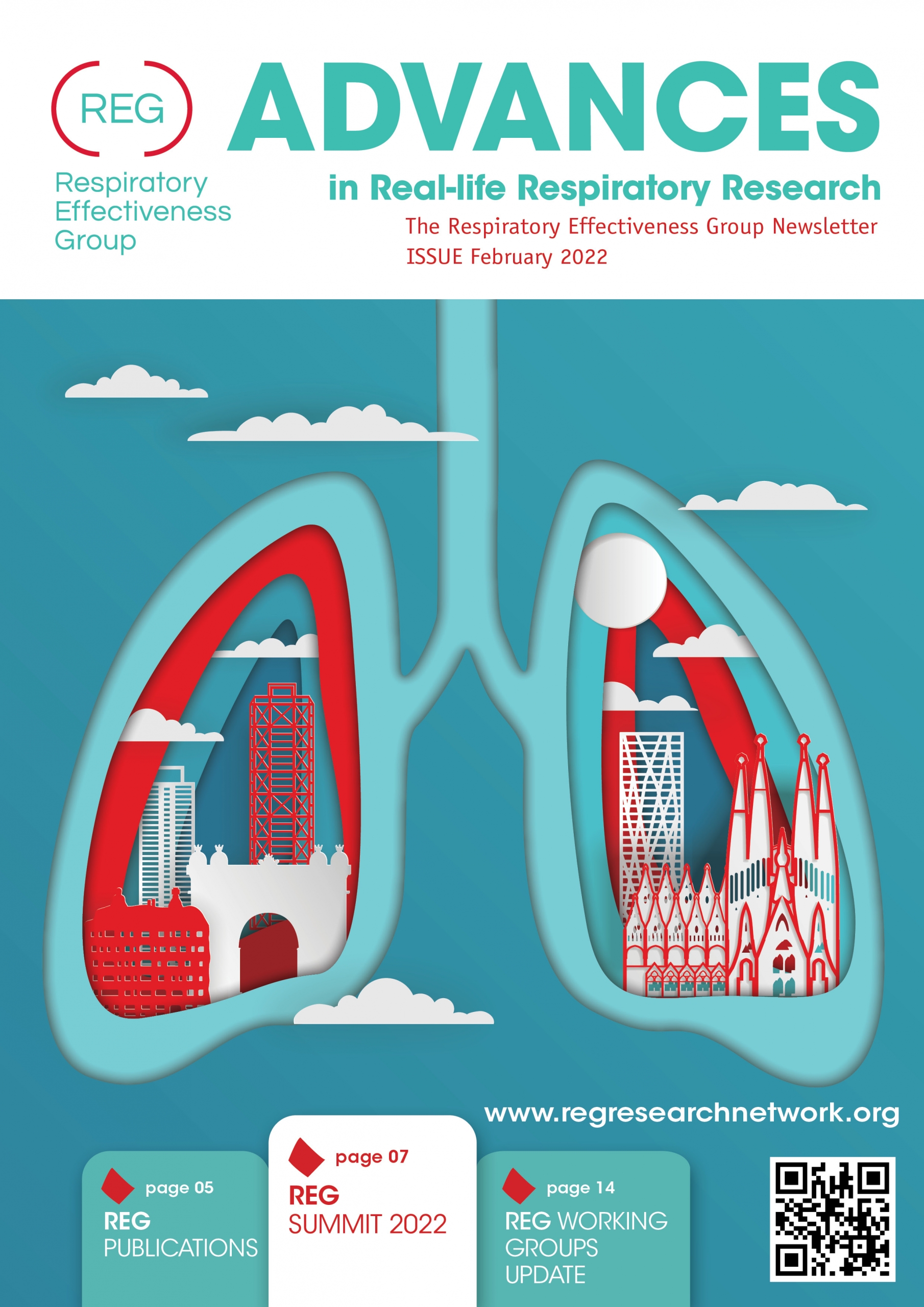Working Group Meeting Schedule at ERS 2022, Barcelona
REG is pleased to announce the resumption of in-person Working Group meetings taking place at ERS this year. Meetings are open to everyone (collaborators and supporters) so please come along to those of particular interest to find out about REG and its research projects and re-connect with many of your colleagues. Online participation to the meetings will also be possible.
Saturday 3rd September
09:00 – 10:00 Allergy Working Group
10:00 – 11:00 ILD/IPF Working Group
11:00 – 12:00 Environment, Epidemiology and Airways WG
12:00 – 13:00 COPD Working Group
13:00 – 14:00 Biomarkers & Severe Asthma Working Group
14:00 – 15:00 Technologies Working Group
15:00 – 16:00 Database and Coding Working Group
16:00 – 17:00 Adherence Working Group
17:00 – 18:00 Cost Effectiveness Working Group
18:00 – 19:00 Child Health Working Group
All meetings will be held at:
Hotel SB Plaza Europa, Carrer de les Ciències, 11, 13, 08908 L'Hospitalet de Llobregat, Barcelona
(The hotel is located close to the ERS Congress venue, FIRA Barcelona Gran Via congress centre, Hall 8 which is a 5 minute walk away)
Hotel Location and access
By metro:
Line L9 sud. Metro stop: Fira
Just 900 meters from the hotel (10 minute walk)
Line L10 sud. Metro stop: Ciutat de la Justícia
900 meters from the hotel
Line 10 sud. Metro stop: Foneria
700 meters from the hotel (8 minute walk)
By train
Station: Ildefons Cerdà
Just 350 meters from the hotel (5 minutes walk)










